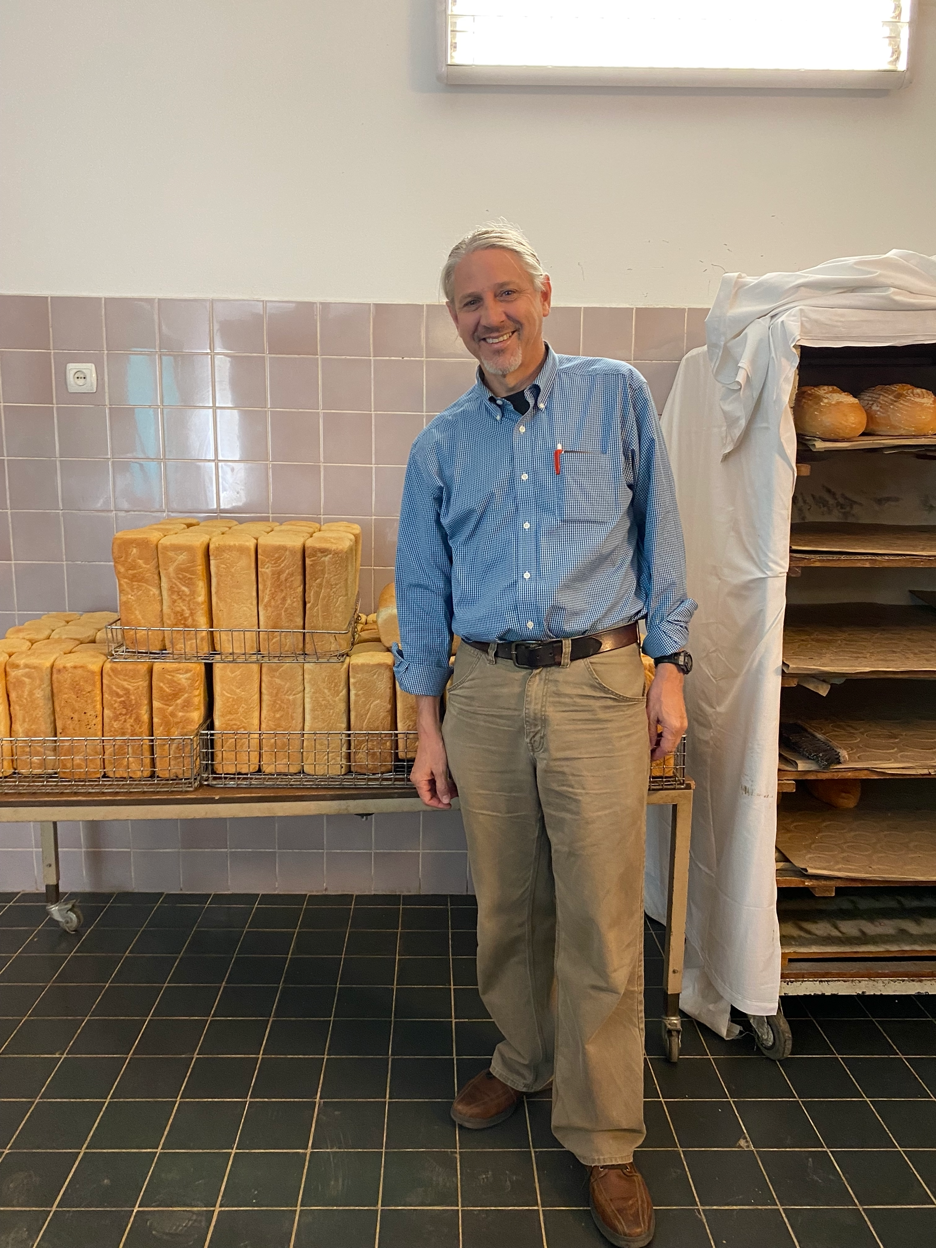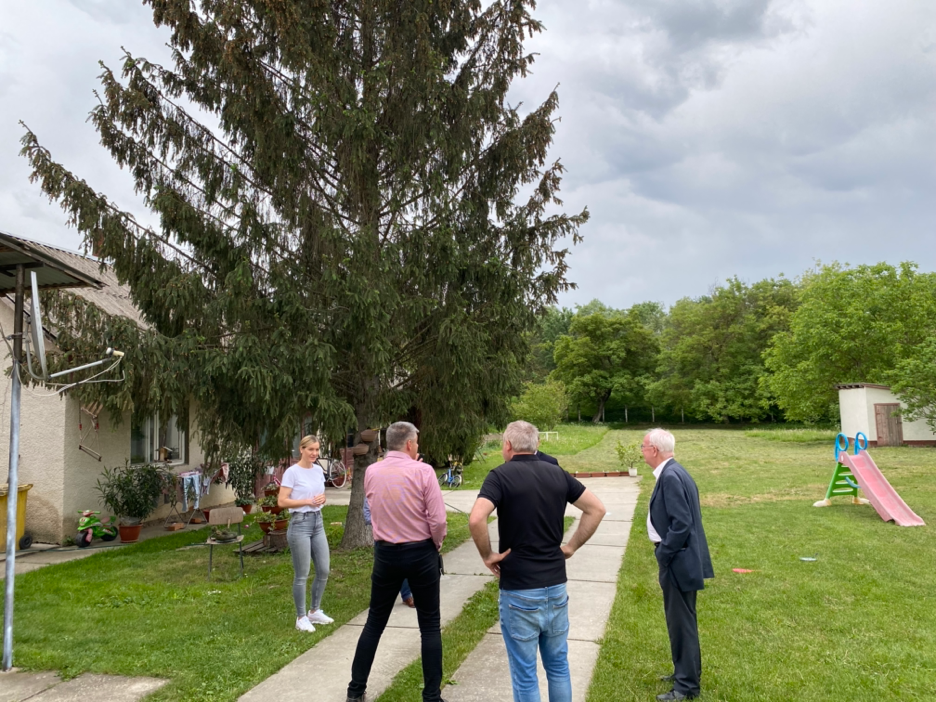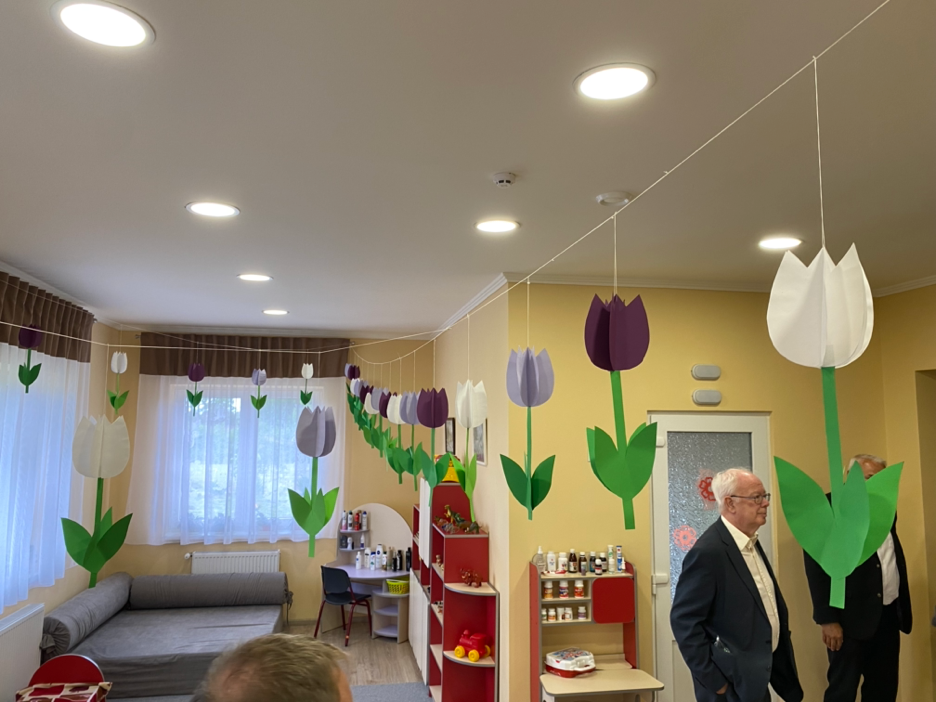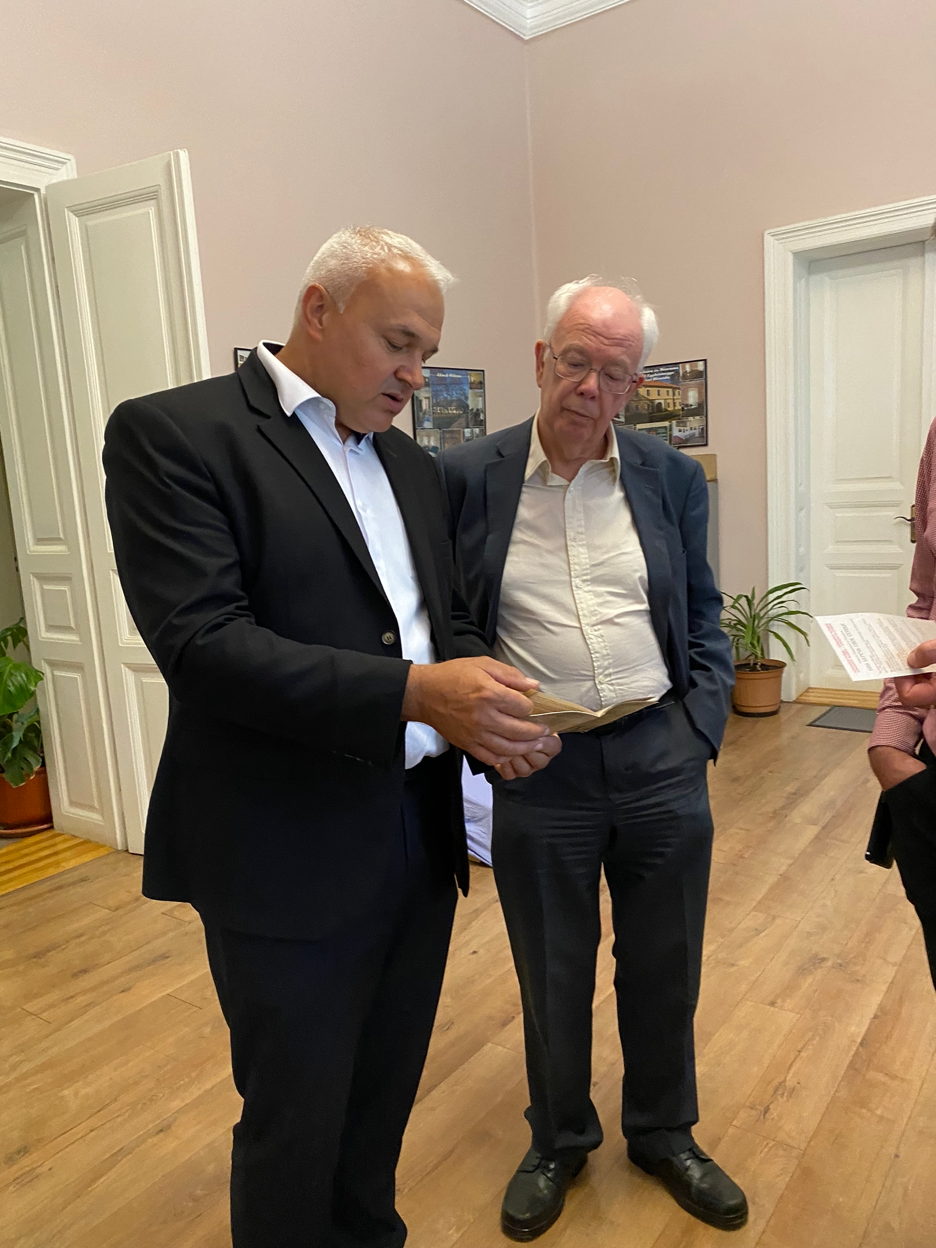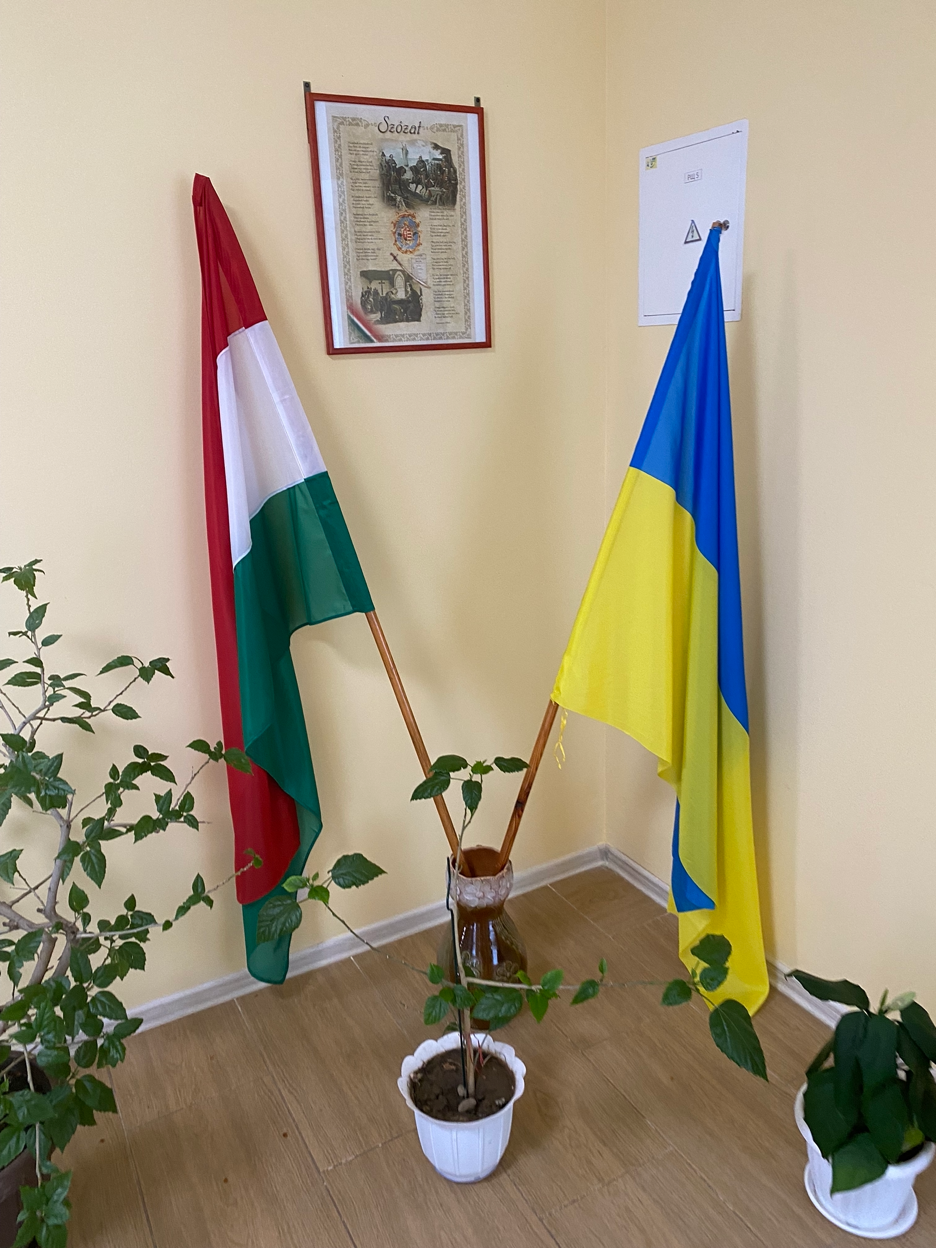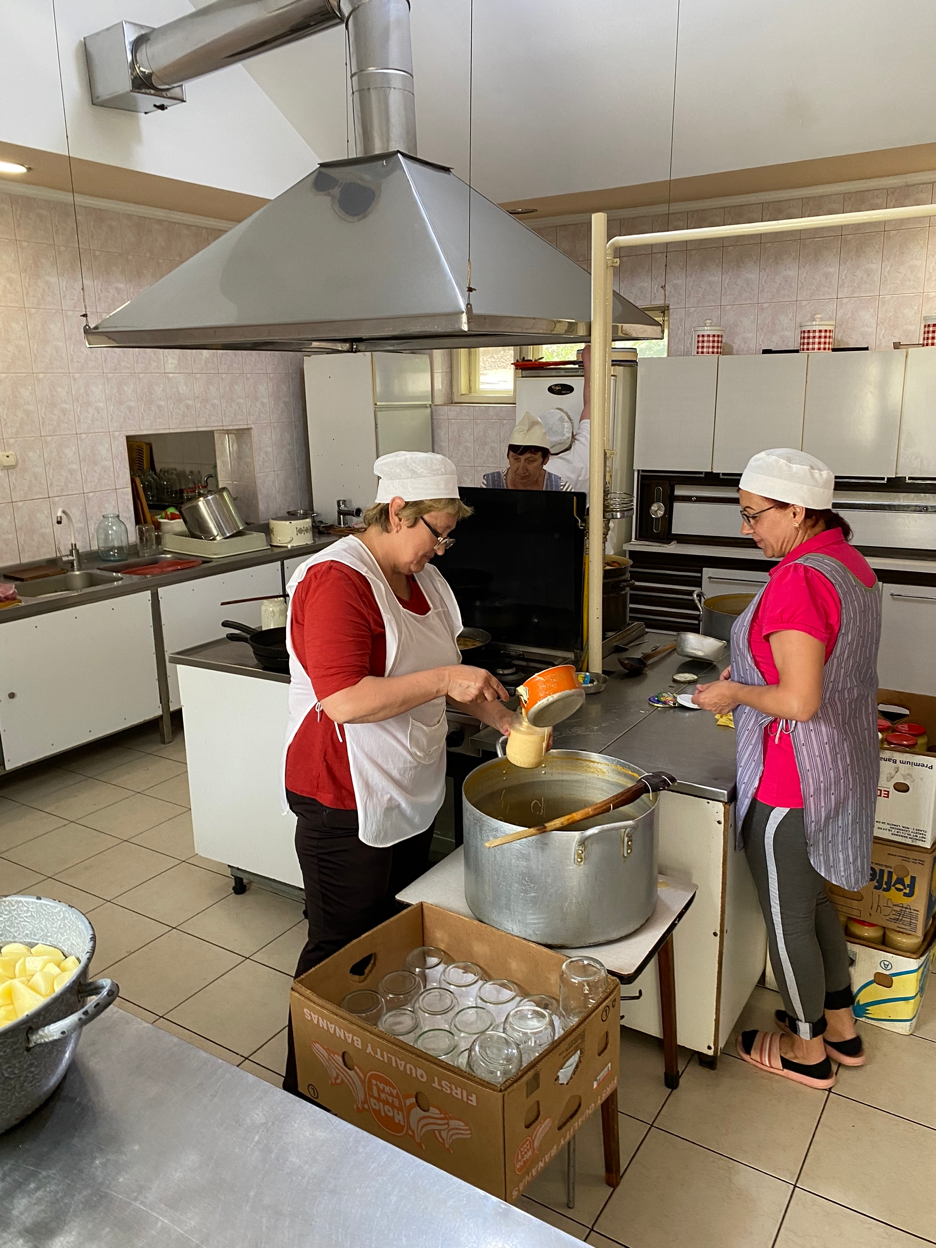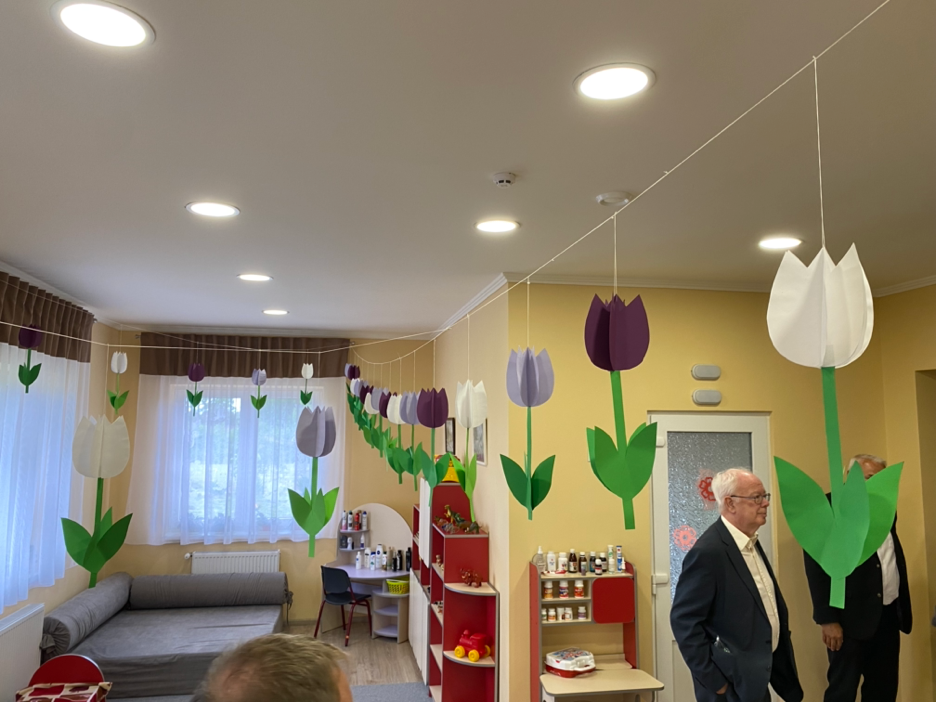Delegation to Ukraine, May 17-18 2022
On May 17 and 18, I (Jeff) was invited to join an official delegation of Church of Scotland officials who were visiting western Ukraine, the area known as Transcarpathia, for a very quick visit. I was invited to go in lieu of our friend and pastor, Rev. Aaron Stevens, who had been invited to join the delegation as a member of the Church of Scotland most closely connected geographically to this region. As Aaron could not attend, he asked me to join the group.
My colleagues on the delegation were Rev. Balázs Ódór and Anna Derencsényi, both from the Reformed Church of Hungary where Balázs is the Ecumenical Officer, and Anna works in the International Diaconal office. In the delegation from Scotland I was honored to meet the Moderator (or the Chair of the annual General Assembly) the Rt Hon Lord Wallace of Tankerness QC, whom I was allowed to just call “Jim.” Jim is a lawyer, and has had an active political career, as a long-time member of the House of Lords, and a former Deputy First Minister in the Scottish Executive (for my mostly American readers, as best as I can tell, this means Jim is kind of like the former Attorney General, congressman, and Vice-President of Scotland). The trip was essentially set up as a way for Lord Wallace (Jim) to see first-hand how the partnership and financial gifts of Church of Scotland congregations were being put to use in Ukraine. You will find a professional account of our trip written for the Church of Scotland audience here.
We left Budapest just after breakfast on Tuesday May 17, and by 11:30 we were at the border crossing at Beregsurány, which showed no signs of any special activity coming in or going out. I have been hearing reports that at some border crossings there are now many people going back into Ukraine, while others are still leaving, due to the apparent calming of violence in parts of the country.
Once through the border crossing, we were soon at our destination, the diaconal center of the Transcarpathian Reformed Church. Our hosts were the director, Béla Nagy, and his wife Marika, and we were shown around the large compound with a very active “social service bakery,” a large kitchen packaging meals for refugees, a large, relatively new guest house currently housing over 80 refugees (we stayed here also, and it was relatively newly built and very comfortable), and other services like an ambulance, and services to children, the disabled, and marginalized Roma communities. We had lunch with “Bacsi” Béla Nagy and “Neni” Marika and some staff members before heading out to make several visits. Béla and Marika are the overseers of the diaconal work, with many years of experience, and connections everywhere. We were joined by the Bishop of the Transcarpathian Reformed Church, Sándor Zán Fábián, a young-looking, but very wise and kind guide who not only showed us the area, but also opened his heart to us in profound ways.
The bearded irises were in full flower everywhere we went, standing like colorful sentinels with their maroon, purple, yellow, and white flags flying. The wisteria and lilacs were also just flaunting their natural beauty. Cuckoo birds were unaware that their calling was reminding me of storybook clocks from my childhood. Everything was so *normal* - it seemed so strange to keep remembering I was in a country whose sovereignty is under existential threat, and whose citizens just a few hundred miles away were being bombed routinely, had fled their homes, or were already among the injured or dead.
Our first visit was to a village called Badaló. There we visited an amazing after-school program set up for Roma children in the area. The building in which the program was housed, next to the church, was beautiful, relatively recently built, and well-organized. The group of about 15 children were being exposed to a variety of academic and life skills ranging from Bible verses to tooth-brushing. Bishop Fábián asked the children to raise their hands if their father was still in the home, knowing that most Ukrainian families are dealing with the reality that the men have been called to war. None of the children have fathers currently at home, and then when he asked about how many of them had mothers that were working, only one raised their hand – a student whose mother is a mail carrier. The director of the program, a woman named Livia, gave us a tour and an overview of the program, and her professionalism and care for the children was inspiring. The pastor of the local church was also there to greet us, and he showed us a basement bunker for up to 15 students that they have cleared out and filled with mattresses, blankets, food, water, and lanterns. They have not had to use the bunker yet, but they are prepared if the need arises; on several recent nights they have heard air raid sirens, but thankfully there is no active shelling in this area for the time being. At the back of the yard of the school, we were shown that what’s known as the “green border,” adjacent to the property – this is the actual border between Ukraine and Hungary, and the term “green border” refers to the fact that sometimes people cross over back and forth without going through the proper check points.
From Badaló we drove a short distance to another area with a newly built kindergarten building. We stopped to take a brief tour. When we entered, it was so quiet I assumed the children were gone for the day. Colorful paper tulips hung in neat rows from the ceiling, and neat rows of toys told me that someone had prepared for the Bishop’s visit. But I was wrong about the children. Apparently, it was nap time, and we were shown the room where the kids were in full nap mode, pajamas and all, in bunk beds in a quiet room with their teachers. These initial visits were a demonstration of the activity of the Reformed Church of Transcarpathia over the past many years to bring opportunities for school and learning to the Roma communities in this area.
Very near to the kindergarten we took a short detour to drive through a sort of settlement with houses that were not exactly houses, and we learned that this was the “neighborhood” from which the kids at the school had come, with homes built from cardboard and pallets, a gravel and dirt road, and clear evidence of poverty and great need. Imagining the experience of children who move between these two experiences – the immaculate kindergarten building and the home with the dirt floor – was challenging.
From here we drove to a town called Vary, where Bishop Fábián is a minister of a congregation in addition to serving as Bishop for the entire region. He pointed out the handsome old church building, as well as various other landmarks in the small town. He lingered on the experience he has as the weekly pastor for this congregation, deeply reflective when he shared that even though he is extremely busy with the needs of the entire region on his shoulders, he is deeply grateful for the weekly opportunity to sing, recite the creeds, and pray together with the saints from his own congregation. Without this, he said, he would not find the strength and peace he needs for his work.
In Vary, from the town center, we walked up a newly developed walkway, built with help from the Hungarian town of Hódmezővásárhely in 2017 as part of the 500th anniversary of the beginning of the Protestant Reformation. It is an understatement to say that this is a seriously Reformed religious community. The walkway led us to another kindergarten, also relatively newly built, and also clean and organized. The Bishop and the Moderator and Balázs had a good time asking the children questions and engaging them.
From Vary we drove to Beregszasz/Berehove, the main city in this area. The reason this city of 23,000 has two names is complicated, but essentially it is because in the past century a person living in this area of what is now Ukraine has changed countries five times without ever moving. The region has been a part of the Kingdom of Hungary, Czechoslovakia , Hungary again, Ukrainian Soviet Union, and since 1990, Ukraine (even this is a vast simplification). Beregszasz is the city’s Hungarian name, and Berehove its Ukrainian name. Shops and signage all over the area have mostly Hungarian language signage, and people still worship, learn, and conduct their business in Hungarian. Over the past century, many ethnic Hungarians have been actively discriminated against by the Ukrainian education system and government in general. It’s a region marked by historical conflict.
In Beregszasz we visited the Beregszasz Reformed Church. We were given a tour by Rev. Ferenc Taracközi, one of six pastors on the staff. We learned that this worshipping community was shaped by the events of the late 1500s and the Protestant Reformation. They built a church in the early 1700s and had a 900-pound bell cast for the belfry. In 1918 the bell was requisitioned by the Austro-Hungarian military command to be melted down for munitions. In the process of this removal, the wooden belfry caught fire, and the church suffered huge damages. But in the summer of 1921 the harvest of the nearby vineyards was so abundant it was considered a harvest blessing, and much of the church property was able to be rebuilt and restored. The congregation hosts daily worship services in Hungarian, and has recently begun offering daily afternoon services in Ukrainian for newly arrived refugees. On site they have a Christian radio, and television station, a publishing house, and a large high school with a dormitory. Since courses are currently on-line, the dormitory is currently housing 90-100 refugees from eastern Ukraine. We toured the dorm and met Lilly, a young Ukrainian English teacher who had fled with her family from Kharkiv a few weeks earlier. She told us that her husband is a dentist, and his dental clinic is on the ground floor of the building they live in in Kharkiv. When the bombs began to fall on the morning of February 24th, they could not believe it, but they quickly moved to the clinic for safety, where they sheltered with other families from the building for several days. After about a week, during a lull in the bombing, they decided to try to escape by car, and they drove for several days to western Ukraine, where they found shelter in the Reformed church dormitory in Beregszasz. We also toured the state-mandated bomb shelter in the basement of the dormitory, a grim cement cellar with donated mattresses on wooden pallets, and blankets, food, water, and battery-powered lighting. It has not been needed yet, but it is prepared just in case.
Our final visit of the day was to the Bishop’s official office, a restored estate house where lots of literature was prepared for distribution, and other supplies were coming in and out regularly. We met a person from Budapest who was on his 78th trip since the war began (it was day 82 of the war when we were there), and he brings a large cargo van filled with supplies nearly every day and drops them off at the Bishop’s office, where they are then moved further into the country where most needed. We heard the Bishop’s vision for peace, when he shared how he is not encouraging the Christian believers in this region to pray for victory, but instead for peace, and the miracle of forgiveness from both sides. He told us about another vision he has, for the building of a modest community of small homes on the estate property, where retiring ministers might come live – it is apparently the case that because of the regional poverty, many ministers do not have any retirement savings or income, and these small houses could provide a community while also relieving an enormous financial burden on these retired pastors.
Finally, after the Bishop’s office, we were treated to a celebratory dinner in a nearby hotel banquet hall. The Scottish delegation was not the only international group visiting that day, there was another team – a group of Unitarian believers from Transylvia in Romania – as well as a small delegation from Utrecht in the Netherlands who represent an NGO that partners to bring supplies to areas experiencing poverty and war. Together we shared stories of mutual learning over a large meal with plenty of locally made meat, salads, and for dessert the famous and delicious palacsinta, a thin pancake with fruit or cheese (or poppy seeds!) filling. I sat between Janos, a local man who works for an international church aid organization and Neni Marika, both of whom were more comfortable in Hungarian than in English, so I got lots of practice for my language learning.
In the morning after a quick breakfast, we returned to Budapest where I joined the Scottish delegation in a lunch at our church, St. Columba’s Scottish Mission, and we were joined by Rev. Aaron Stevens, Julie, and a few other members of the church community.
Overall it was a very quick, but a deeply meaningful opportunity to see amazing reconciliatory work being done in very difficult circumstances. It was a privilege to be part of such an obviously committed international team of delegates who are committed not only to doing good and charitable things, but to doing them in careful partnership. The work of the Bishop and the diaconal ministry leaders in Transcarpathian Ukraine is difficult, but very blessed. I came away hopeful, and with a broadened vision for God’s Kingdom.
Jeffrey P. Bouman, Ph.D.
Leadership Trainer, Resonate Global Mission
